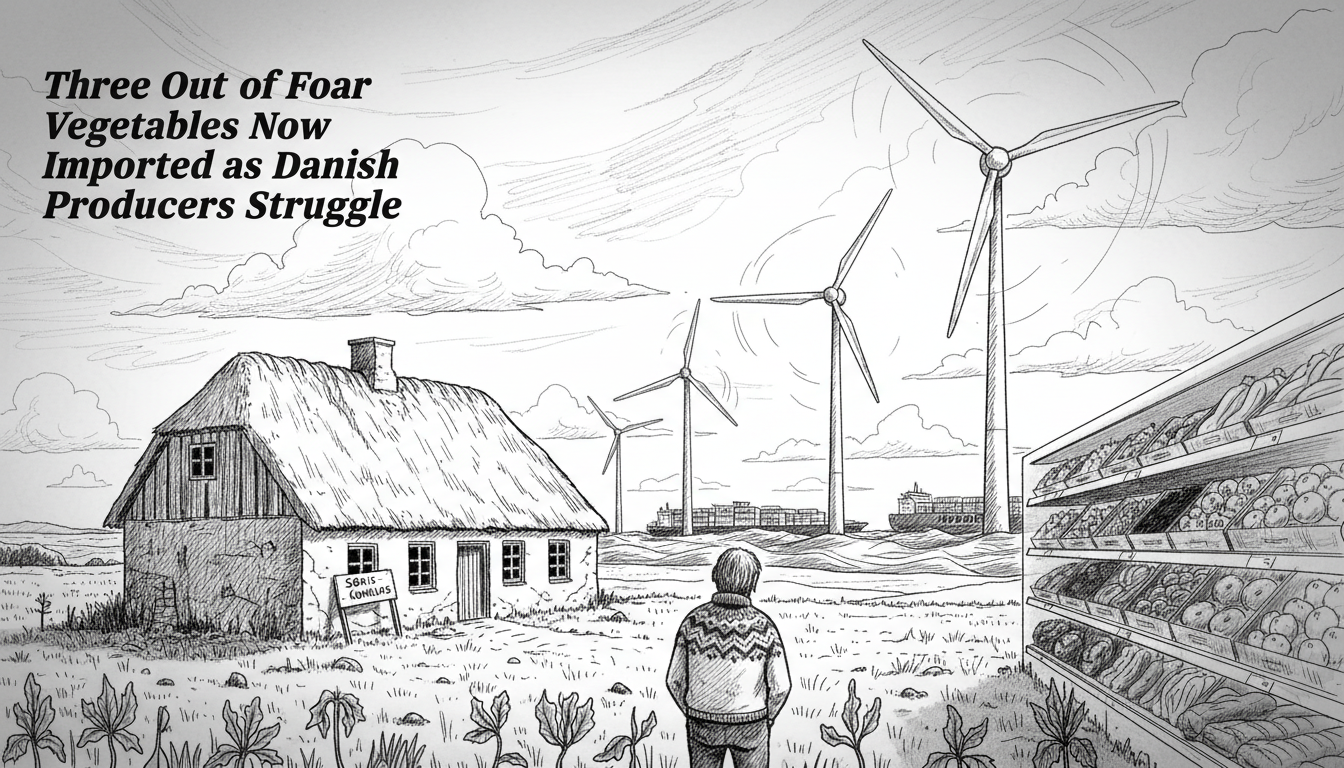Danish supermarkets are filled with imported produce. Only one in four vegetables and one in ten fruits sold in Denmark are domestically grown according to a new food culture report.
The numbers have climbed steadily in recent years. Foreign apples, tomatoes, and cucumbers consistently underprice Danish equivalents.
Last week, major vegetable producer Søris declared bankruptcy. The company had faced years of financial losses before finally filing.
Meal kit company Aarstiderne views this bankruptcy as symptomatic of broader trends. Danish products occupy shrinking shelf space in supermarket vegetable sections.
Søren Ejlersen, founder of Aarstiderne, calls it a sad example of Denmark's production decline. Domestic fruit and vegetable output has dropped 27 percent over six years.
Søris joins numerous outdoor vegetable producers who've either gone bankrupt or exited the market. Since 2008, specialized outdoor vegetable farms plummeted from 201 to 82 operations.
That represents a 60 percent decrease. Finding Danish carrots, cabbage, and root vegetables may become increasingly difficult.
Søris director Jan Algreen described the bankruptcy as ending the family business sadly. He noted the irony of vegetable producers disappearing during Denmark's green transition.
Algreen criticized political priorities indirectly. Politicians recently decided to remove sugar and chocolate taxes starting next summer. They refused to reduce VAT on fruits and vegetables.
The Food Minister announced 163.8 million kroner to help greenhouses offset new CO2 taxes. This compensation aims to support energy-efficient transitions.
Ejlersen opposes subsidizing winter greenhouse heating using oil, coal, or electricity. He advocates instead for systematic, long-term support for outdoor farms.
Danish wages significantly exceed those abroad. Ejlersen suggests supporting technology like weeding robots to reduce labor costs.
The Food Minister acknowledges EU rule limitations on specific machinery subsidies. He believes consumers ultimately hold the solution.
In an ideal world, everyone would buy 100 percent Danish produce, the minister said. He recognizes most shoppers prioritize price when foreign apples and tomatoes cost less.
Despite acknowledging price sensitivity, the minister expects tax cuts and energy charge reductions will give Danes more spending money next year. This could make slightly more expensive Danish produce more accessible.
The situation reveals tough realities for local agriculture amid global competition. Even during environmental transitions, economic pressures can undermine domestic food production.

